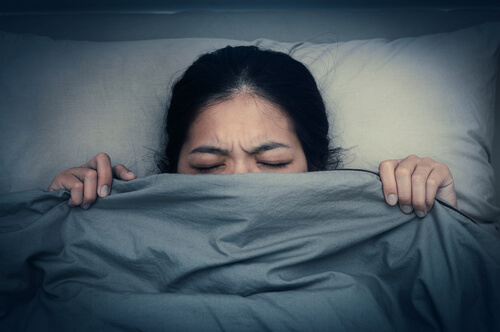Sleeping pills or sleep aid medication are a class of drugs commonly used by people who have difficulty falling asleep on their own. They are inexpensive, generic, over-the-counter (OTC) drugs readily available to the general population. As these drugs affect the central nervous system, it is crucial to be cautious of their interaction with alcohol. Can one take sleeping pills with alcohol? Is their combination safe? Sleeping pills and alcohol death – a myth or a reality?
Learn About Sleeping Pills:
How Sleeping Pills and Alcohol Interact
Many people take sleeping pills for anxiety or insomnia regularly. They may also be consuming wine in their daily lives. For such people, it is significant to know how these two interact with each other. Sleeping pills are generally safe drugs when used alone. As their name suggests, these drugs are hypnotics that induce sleep and tranquilizers that lower anxiety levels. Sedation is one of their major side effects. Alcohol, on the other hand, also affects the central nervous system and makes a person feel drowsy. So, on consuming both together, the side effects of these drugs intensify, resulting in an overdose situation where one might feel more sedated and lose consciousness.
Many people use sleeping pills otc. As they are ingested, they are absorbed in the blood, and hence, they will interact with any other compounds that get absorbed in the blood. Consuming them with daily drink can drastically increase the side effects of both drugs.
Dangers and Side Effects of the Combo
Both alcohol and sleeping aid side effects include sedation. Used together, the effect is magnified to the extent that it may cause loss of consciousness or even coma.
According to NIAAA, other dangerous adverse effects of consuming them together include drowsiness, sleepiness, dizziness, slowed, or difficulty in breathing, impaired motor control, unusual behavior, and memory problems.
Poisoning and Overdose
Mixing sleeping pills with alcohol can result in heightened effects of both drugs. Even when using low concentrations together, this can lead to sleeping pills and alcohol overdose. This is because both drugs potentiate each other’s effects. An individual can be poisoned to a comatose state on consuming both drugs together.
Decreased Sleep Quality
Both drugs affect the sleep-related brain waves and make an individual fall asleep more quickly. This comes at the price of sleep quality, especially deep sleep. Lack of deep sleep can make a person restless and tired in the long run.
Mental Health Effects
Mixing alcohol and sleeping pills can result in adverse mental effects. The combination increases the levels of anxiety and depression. This might lead to substance abuse, as depression and anxiety are often a precursor to sleeping disorders and substance abuse.
Mixing Sleeping Aids With Alcohol And Risk of Death
Can sleeping pills kill when used with alcohol? It’s possible. Both drugs cause depression of the central nervous system. The central nervous system controls essential functions for life, like breathing and pumping of the heart.
Depressing the system leads to slowing down of heart rate and respiration. If this is not treated promptly, death occurs.
Safe Amount of Alcohol With Sleep Aid Medicine
For men, the established recommendations for safe levels are two drinks maximum every day. For non-pregnant women, only one drink is recommended for daily intake as women tend to have lesser body weight than men. However, as the sedative effect of sleeping pills is very strong, using them with any amount of alcohol, even just wine is not safe.
It is advised never to mix sleeping pills and wine because the interaction can be dangerous and potentially fatal. Red wine and sleeping pills can mostly cause dizziness, fainting, and confusion. Wine use can cause or aggravate existing insomnia, which defeats the purpose of sleeping aid drugs.
How long after drinking can one take a sleeping pill? According to NCBI, on an empty stomach, blood alcohol concentration peaks about an hour after consumption, depending on the amount consumed; it then declines linearly for the next four hours. Alcohol is removed from the body at a rate of about 3.3mmol/ hour, but this varies over different populations.
Therefore, it is safe to avoid the use of sleeping medications after drinking. However, a person can consume them after at least 8 hours of consumption of alcohol to minimize the risk of extreme side effects.
Treatment of Sleeping Pills and Alcohol Addiction
It is possible to get addicted to sleeping pills and alcohol. People consuming these drugs can develop tolerance and dependence on them. As time goes by, they need higher and more regular doses to help with sleep. This may eventually cause drug abuse and overdose.
It is essential to identify this addiction and seek treatment by regularly visiting the rehabilitation facility near the place of residence of addicted individuals. Joining a drug recovery program can help tremendously. Usually, the treatment starts with the use of different types of detox, which helps in the elimination of drugs from the body, followed by the remaining procedures of the program.
Although many sleeping pills are easily available over-the-counter drugs, it is risky to consider them safe, especially for regular drinkers.
For alcohol addicts with sleep disorders, unawareness of the effect of their simultaneous use can be fatal. People should avoid using both together.
Page Sources
- Harmful Interactions: Mixing Alcohol With Medicines. National Institute on Alcohol Abuse And Alcoholism. https://www.niaaa.nih.gov/publications/brochures-and-fact-sheets/harmful-interactions-mixing-alcohol-with-medicines
- Alex Paton. Alcohol in the body. BMJ. 2005 Jan 8; 330(7482): 85–87. https://www.ncbi.nlm.nih.gov/pmc/articles/PMC543875/

 Authored by
Authored by  Reviewed by
Reviewed by 


